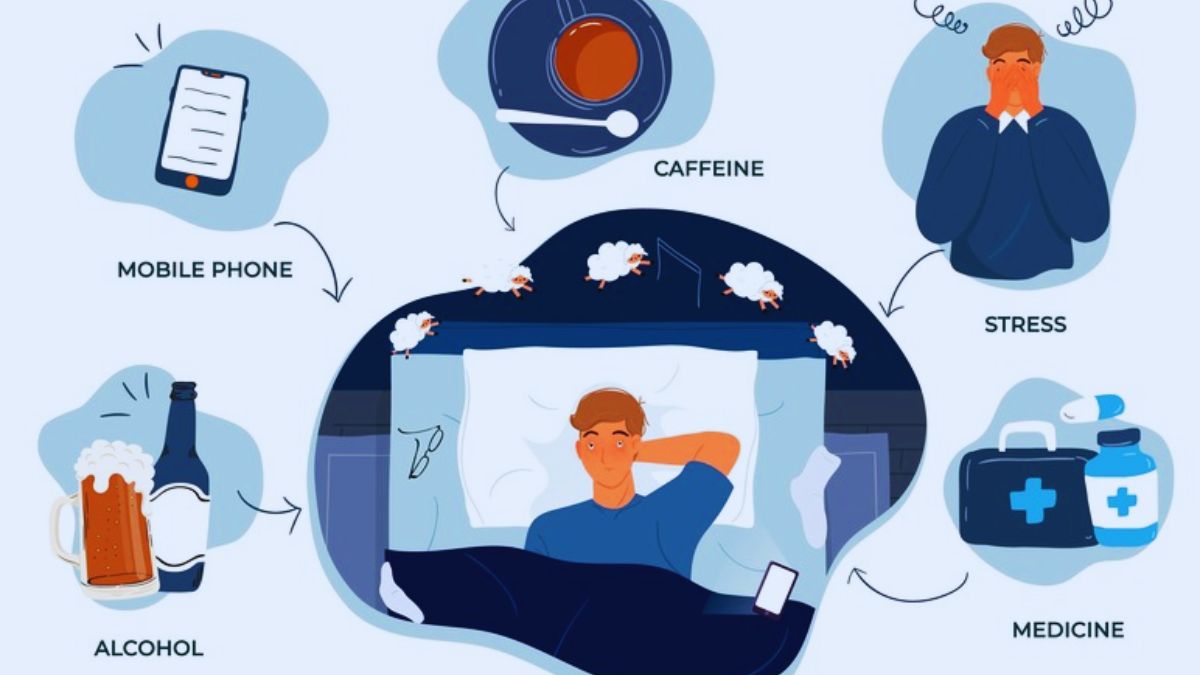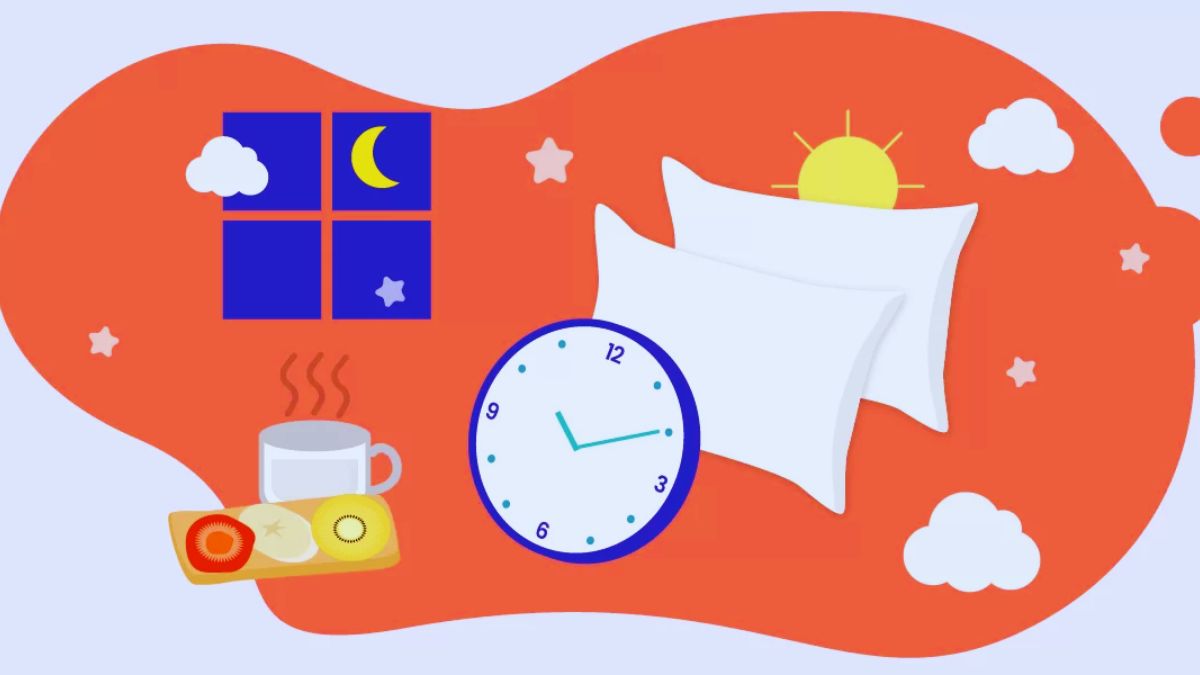Developing certain habits, like keeping a consistent schedule and limiting blue light exposure before bed, can improve your sleep hygiene and promote quality sleep to a considerable extent. In today’s world, a major problem adults face is sticking to a healthy sleeping pattern.
This article shares some useful tips that one can incorporate to promote and maintain optimal sleep hygiene. If you’re in need of better sleep, it may be time to consider your sleep hygiene — and how your habits may be preventing you from getting the quality sleep you need. Let’s get into what sleep hygiene is and the changes you can make to your daytime and bedtime habits to improve your sleep.
What is Sleep Hygiene?
Sleep hygiene refers to healthy sleep habits that help you get a good night’s sleep. Good sleep hygiene is important because of how crucial getting good sleep is for your mental and physical health, as well as your overall quality of life.
Your behaviours during the day, not just before you go to bed, can affect how well you sleep. This majorly includes:
- Food & Beverage Choices
- Work or Daily Schedule
- Evening Routine
If you don’t sleep well, you can take several steps, both during the day and before you go to bed, to improve your sleep.
Top 7 Healthy Sleep Hygiene Tips
1. Have a Consistent Schedule
Try to go to sleep and wake up at about the same times every day — even on weekends. This reinforces your body’s sleep cycle (your internal clock), which can make it easier for you to fall asleep and wake up every day. Sticking to a consistent schedule may also help reduce daytime sleepiness.
Make sure that the bedtime you pick allows you to get 7– 8 hours of sleep each night.

2. Create a Relaxing Bedtime Routine
A relaxing bedtime routine helps you unwind so you’re ready to sleep. Keeping the routine consistent helps your body recognize that it’s bedtime when you start the routine. This may help you fall asleep more quickly. The best time to start your routine is about 30– 60 minutes before you go to bed.
Your routine can include whatever makes you feel most relaxed:
- Take a warm bath or shower.
- Try some gentle stretches or yoga to help your muscles relax and release tension.
- Spend a few minutes meditating to help calm your body and mind.
- Try listening to some soothing music while you focus on your breathing.
3. Stay Away from Electronic Devices
Electronic devices like your phone emit blue light, which can reduce melatonin levels in your body. It’s similar to how seeing sunlight can make you feel more awake. Melatonin is a chemical that controls your sleep/wake cycle. When your levels dip, it can be more difficult to fall asleep.
Message notifications, buzzing, and light that can suddenly pop on in the middle of the night can interrupt your sleep.
4. Regular Workout & Exercise
As little as 30 minutes of aerobic exercise per day can improve your sleep quality and overall health. Exercising outside might increase the benefits even more since exposure to natural light helps regulate your sleep cycle.
But avoid exercising within an hour or two of your bedtime. This can increase your energy levels and body temperature, which may make it harder to fall asleep.
5. Control the Caffeine Intake
The effects of caffeine can last 3-7 hours after you consume it. Although it’s usually best to limit your caffeine intake to the morning hours, keep in mind that everyone has a different tolerance to caffeine. Hence, the less caffeine you consume, the more sensitive you may be to its effects.

6. Limit your Nap Time
Napping during the day can make it harder to fall asleep later and may make you more prone to waking up during the night. Napping may affect the sleep pattern of older adults more than younger people, so try and avoid it later in the afternoon.
7. Limit Large Meals during Dinner
Eating a large meal before bed may negatively affect your sleep quality. It may also cause symptoms of acid reflux, which can keep you awake. Health experts also recommend avoiding alcohol and nicotine, especially before bed, as they can worsen your sleep quality.
Sleep hygiene is about having healthy sleep habits. Your behaviours, both during the day and around bedtime, can affect the quality of your sleep. Sticking to a schedule, having a relaxing bedtime routine, exercising regularly, keeping your bedroom dark and at a comfortable temperature, and watching what you eat and drink can all impact the quality of your sleep. However, if you continue to have issues with your sleep patterns or face insomnia as a condition, be sure to follow up with your doctor for more insight and appropriate treatment.



